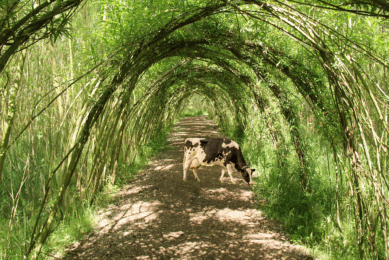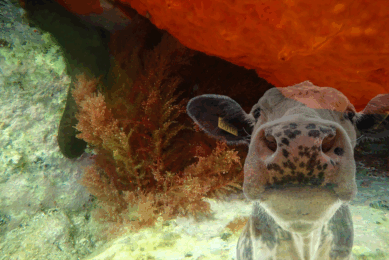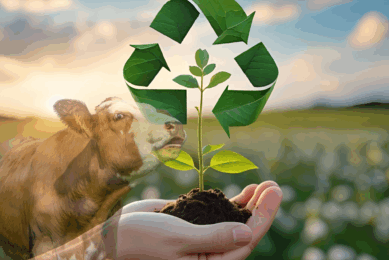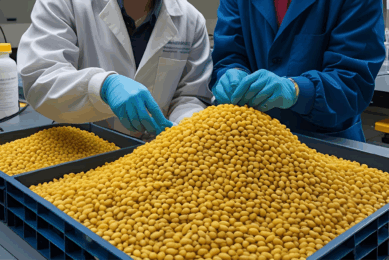New dairy feed using flaxseed and pea protein could cut methane output
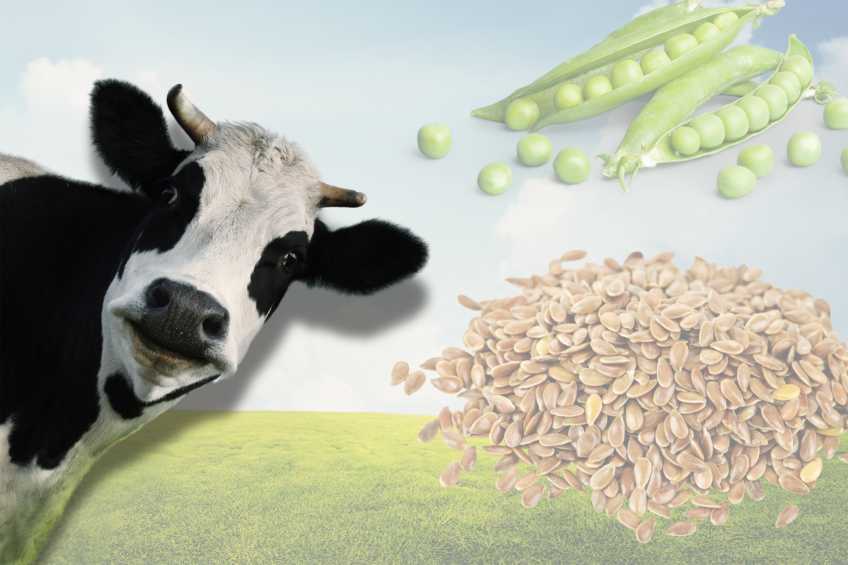
Researchers have been testing a novel type of cattle feed that could help reduce methane emissions.
The team from the University of Florida have looked at a potential dairy cattle supplementary feed made of flaxseed and pea protein to reduce methane. When cows’ stomachs make methane, they lose valuable energy that could otherwise be used to make milk or meat.
Boosting milk, cutting methane
So by feeding them in a way that reduces methane output, the researchers hoped to help the cow produce more milk while also chasing climate goals.
Lead researcher Antonio Faciola, Professor at the University of Florida’s Department of Animal Sciences, said: “It’s a win-win situation. Every time we reduce the methane, we keep that energy in the cow’s body.”
Testing digestion in the lab
James Vinyard, University of Alaska research assistant professor and UF post-doctoral student, simulated dairy cattle’s digestion in the lab to see how much methane was produced and to examine possibilities of improving that fermentation by adding a supplemental feed.
It’s a win-win situation. Every time we reduce the methane, we keep that energy in the cow’s body.”
— Antonio Faciola, University of Florida
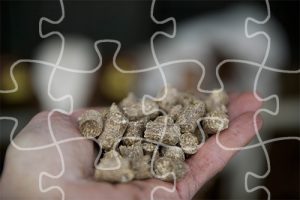
Flax and peas reduce gas
So, the researchers added the flaxseed and pea protein supplement to the dairy cattle’s rumen in a lab and measured how fermentation changed.
The supplement, rich in omega-3 fatty acids and proteins, reduced methane production and improved overall digestion.
Energy boost may aid milk
Faciola said the supplement had multiple potential benefits: “Not only could it reduce methane emissions but it might also increase energy availability for cows, potentially leading to increased milk production.”
Next step: field testing
Future studies will include feeding the supplement to dairy cows to see if the lab results match what happens in the field.
Industry support and publication
The study was funded in part by O&T Farms Ltd, a Canadian farm that produces animal supplements. It has been published recently in the Journal of Dairy Science.




